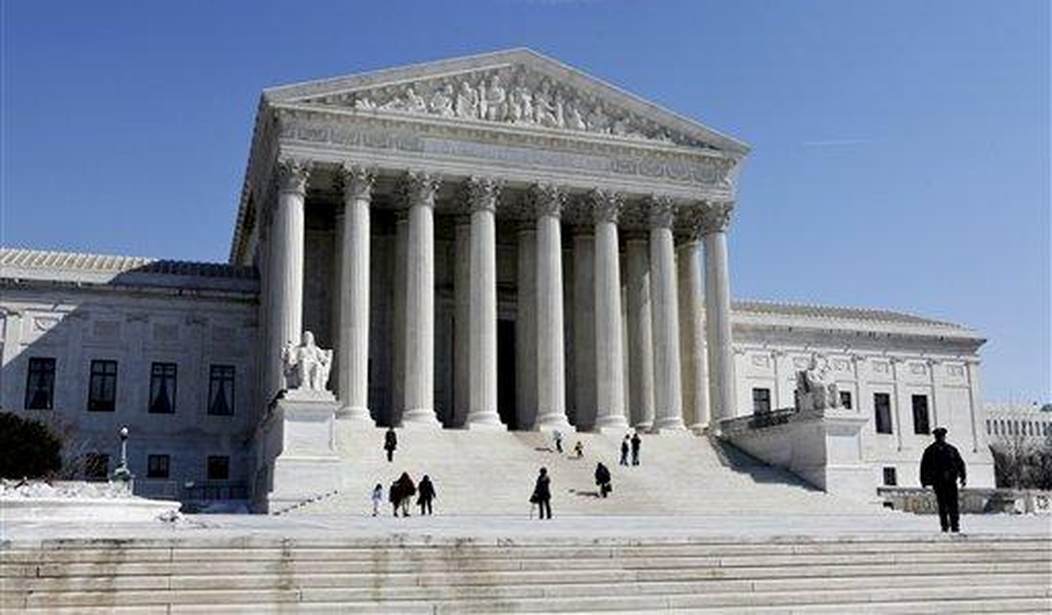On a sunny Friday afternoon in July 2014, James King, a 21-year-old college student, was walking to a summer job in Grand Rapids, Michigan, when he was accosted by two unshaven men wearing jeans and baseball caps who asked his name and grabbed his wallet. When King tried to flee, the men tackled him, choked him unconscious, and punched him in the face over and over again.
The men, it turned out, were cops, and for six years King has been trying to hold them accountable for their actions that day. Next Monday the U.S. Supreme Court will consider whether he should get that chance. If not, police officers will have another legal trick they can use to violate people's constitutional rights with impunity.
"Are you mugging me?" King asked before trying to get away. As he was being choked and beaten, he cried for help and asked bystanders to call the police, which several of them did.
The assailants, FBI agent Douglas Brownback and Grand Rapids detective Todd Allen, were looking for a 26-year-old man named Aaron Davison, who allegedly had stolen liquor and empty soda cans from his former employer's apartment. They had a driver's license photo of Davison, which looked nothing like King.
Brownback and Allen, who were members of a state-federal fugitive task force, nevertheless claimed they reasonably believed King was Davison, based on the suspect's general description and the fact that King was in the same neighborhood where Davison had a habit of buying soda. They also said they identified themselves as police officers, which seems highly doubtful given King's reaction.
"I thought they were trying to mug me," King told an officer who arrived in response to bystanders' 911 calls. Even at that point, he was asking whether the men were "real police."
Recommended
Because a Grand Rapids officer ordered witnesses to delete their cellphone recordings of the beating (ostensibly "for the safety" of "undercover officers"), we have no video of the struggle. But witness accounts suggest that Allen -- who choked King and, after the panicked college student responded by biting his arm, hit him in the face and head "as hard as I could, as fast as I could, and as many times as I could" -- was out of control.
"They were pounding his head for no reason," a bystander says in a cellphone recording. "They're gonna kill this man," a 911 caller said.
King's first stop after this harrowing encounter was the hospital; his next stop was jail. He was charged with three felonies for assaulting Brownback and Allen, but a jury acquitted him.
After a federal judge dismissed the lawsuit that King filed in response to the incident, the U.S. Court of Appeals for the 6th Circuit last year ruled that he could pursue his constitutional claims against Brownback and Allen. It said a jury could reasonably conclude that the cops violated the Fourth Amendment by detaining King without reasonable suspicion, taking his wallet, preventing him from leaving, and using excessive force against a man who thought he was being mugged.
In its appeal to the Supreme Court, the U.S. government argues that King should never get his day in court because part of his lawsuit -- claims against the United States under the Federal Tort Claims Act -- was dismissed for lack of jurisdiction. King's lawyers, joined by members of Congress, civil liberties groups, and several FTCA experts, argue that the government's reading of that statute contradicts its plain language and intent.
According to the government, a law aimed at providing victims of official abuse with additional remedies leaves King worse off than he would have been if it had never been passed: He not only cannot use that statute; he has no recourse at all.
"These officers did something that was illegal and then charged me," King says. "The system closed around them and helped them get away with that. There is zero accountability."
Jacob Sullum is a senior editor at Reason magazine. Follow him on Twitter: @JacobSullum.
























Join the conversation as a VIP Member